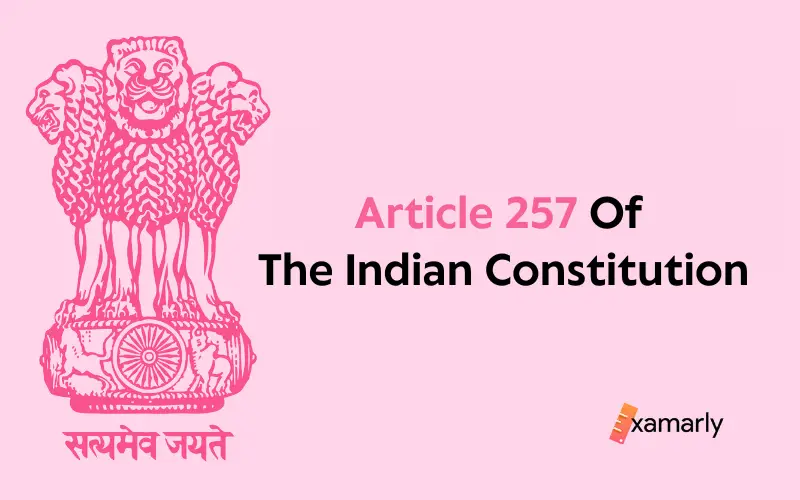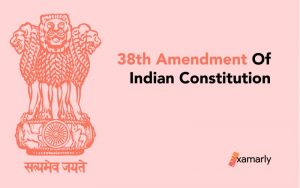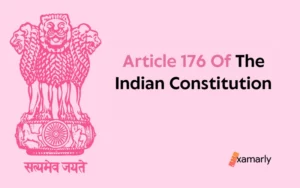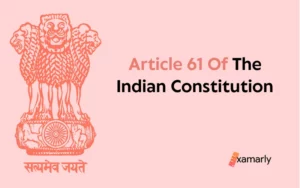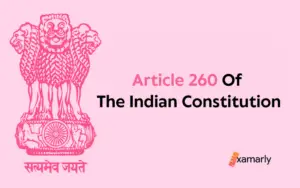Article 257 of the Indian Constitution deals with the power of the President of India to give directions to a state.
It states that “The President may, after consulting the Governor of the State, give such directions to the State as he thinks necessary in the interests of the sovereignty and integrity of India, the security of the State, friendly relations with foreign States or public order or for the maintenance of supplies and services essential to the community.”
This provision gives the President of India the authority to issue directives to a state in certain circumstances, such as when there is a threat to the sovereignty and integrity of India, the security of the state, or public order.
It is a measure that can be used to ensure that the states in India follow the laws and policies of the central government and do not act in a way that is detrimental to the interests of the country.
Article 257 Of The Indian Constitution – In Detail
We will breakdown each and every clause present in Article 257 of the Indian Constitution to have in-depth understanding of what is being said and done in this Article.
Clause 1 – As it is & Explained
257. Control of the Union over States in certain cases
(1) The executive power of every State shall be so exercised as not to impede or prejudice the exercise of the executive power of the Union, and the executive power of the Union shall extend to the giving of such directions to a State as may appear to the Government of India to be necessary for that purpose
The first clause of Article 257 of the Indian Constitution says that every state’s executive power must be used in a way that doesn’t get in the way of or hurt the Union’s executive power.
The Union’s executive power includes the ability to tell a state what to do if the Government of India thinks it’s necessary for that purpose.
Clause 2 – As it is & Explained
(2) The executive power of the Union shall also extend to the giving of directions to a State as to the construction and maintenance of means of communication declared in the direction to be of national or military importance: Provided that nothing in this clause shall be taken as restricting the power of Parliament to declare highways or waterways to be national highways or national waterways so declared or the power of the Union to construct and maintain means of communication as part of its functions with respect to naval, military and air force works
The Union’s executive power also includes the ability to tell a state how to build and take care of means of communication that are deemed to be of national or military importance in the direction.
It also says that provided that nothing in this clause can be used to limit the ability of Parliament to declare highways or waterways as national highways or national waterways, or the ability of the Union to build and maintain means of communication as part of its duties for naval, military, and air force works.
Clause 3 – As it is & Explained
(3) The executive power of the Union shall also extend to the giving of directions to a State as to the measures to be taken for the protection of the railways within the State
According to the third clause of Article 257 of the Indian Constitution, the executive power of the Union shall also include the ability to instruct a state on the precautions that need to be taken in order to ensure the safety of the railroads that are located within that state.
Clause 4 – As it is & Explained
(4) Where in carrying out any direction given to a State under clause ( 2 ) as to the construction or maintenance of any means of communication or under clause ( 3 ) as to the measures to be taken for the protection of any railway, costs have been incurred in excess of those which would have been incurred in the discharge of the normal duties of the State if such direction had not been given, there shall be paid by the Government of India to the State such sum as may be agreed, or, in default of agreement, as may be determined by an arbitrator appointed by the Chief Justice of India, in respect of the extra costs so incurred by the State
(4) The Government of India is obligated to reimburse each state for costs that exceed those that would have been incurred in the normal performance of the state’s responsibilities in the absence of any direction given to the state under clause (2) or clause (3) regarding the construction or maintenance of any means of communication or regarding the measures to be taken for the protection of any railway.
This provision applies when a state is carrying out any direction given to it under clause (2) regarding the construction or maintenance of any means of communication or under clause (3) regarding the measures to be
Related – Article 254 Of The Indian Constitution
Summing Up
Article 257 of the Indian Constitution allows us to draw the following conclusions about directions given to a state for the building and maintenance of means of communication declared in the direction to be of national or military importance
With the proviso that nothing in this section shall be construed as affecting the competence of Parliament to declare highways or waterways to be national highways or national waterways, as the case may be. costs expended by a state in carrying out orders made for the protection of any railway under clauses (2) or (3)
FAQs
What are the circumstances under which the President can give directions to a state?
The President can give directions to a state in the following circumstances:
In the interests of the sovereignty and integrity of India
In the interests of the security of the state
In the interests of friendly relations with foreign states
For the maintenance of public order
For the maintenance of supplies and services essential to the community
Can the President give directions to a state without consulting the Governor?
The President is required to consult the Governor of the state before giving directions to the state. However, in cases of urgency, the President may give directions to the state without consulting the Governor.
Can a state challenge the directions given by the President?
A state cannot challenge the directions given by the President under Article 257 of the Indian Constitution. The directions of the President are binding on the state and must be followed. However, if the state believes that the directions are unconstitutional, it can challenge the validity of the directions in the Supreme Court of India.


